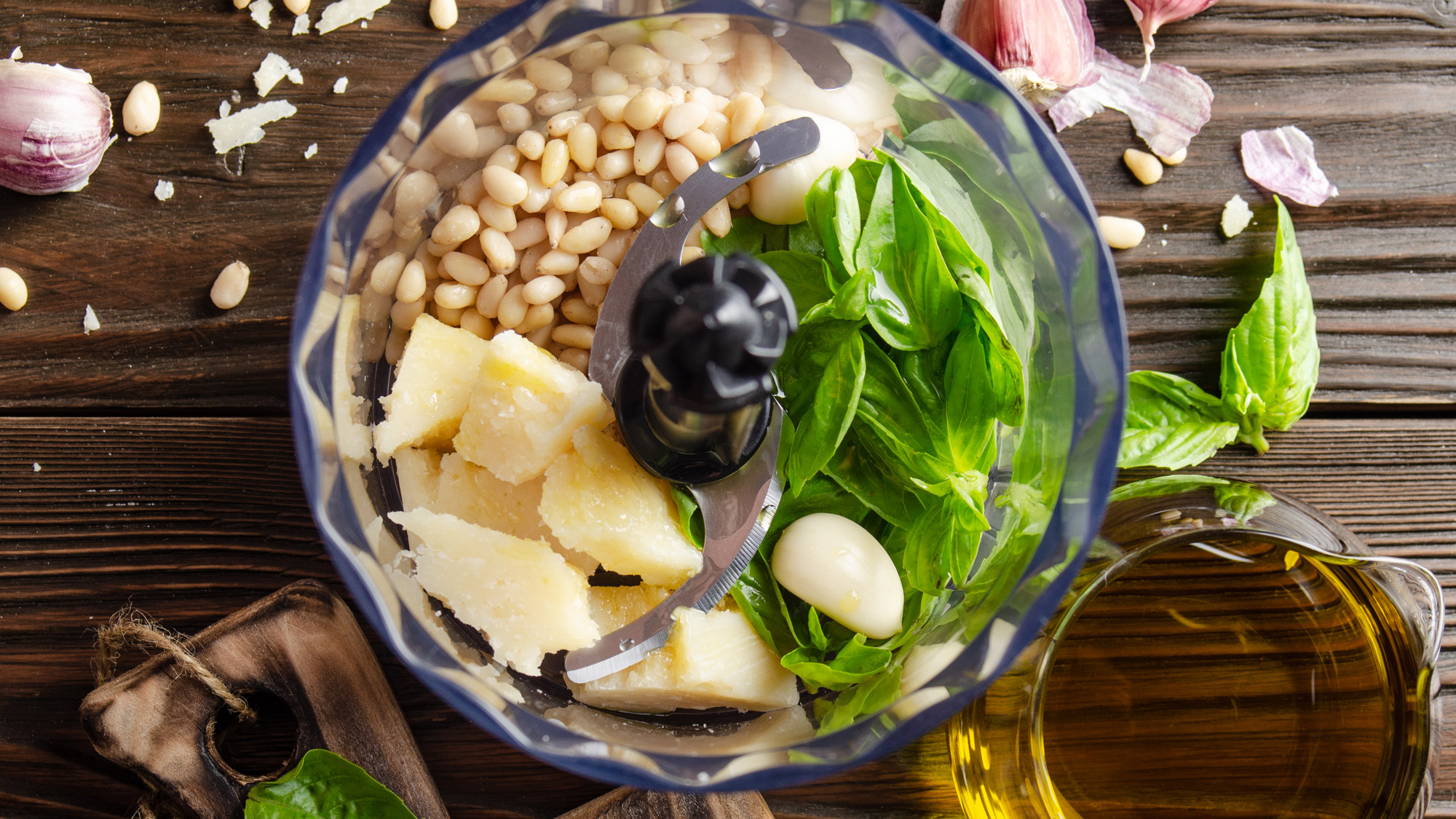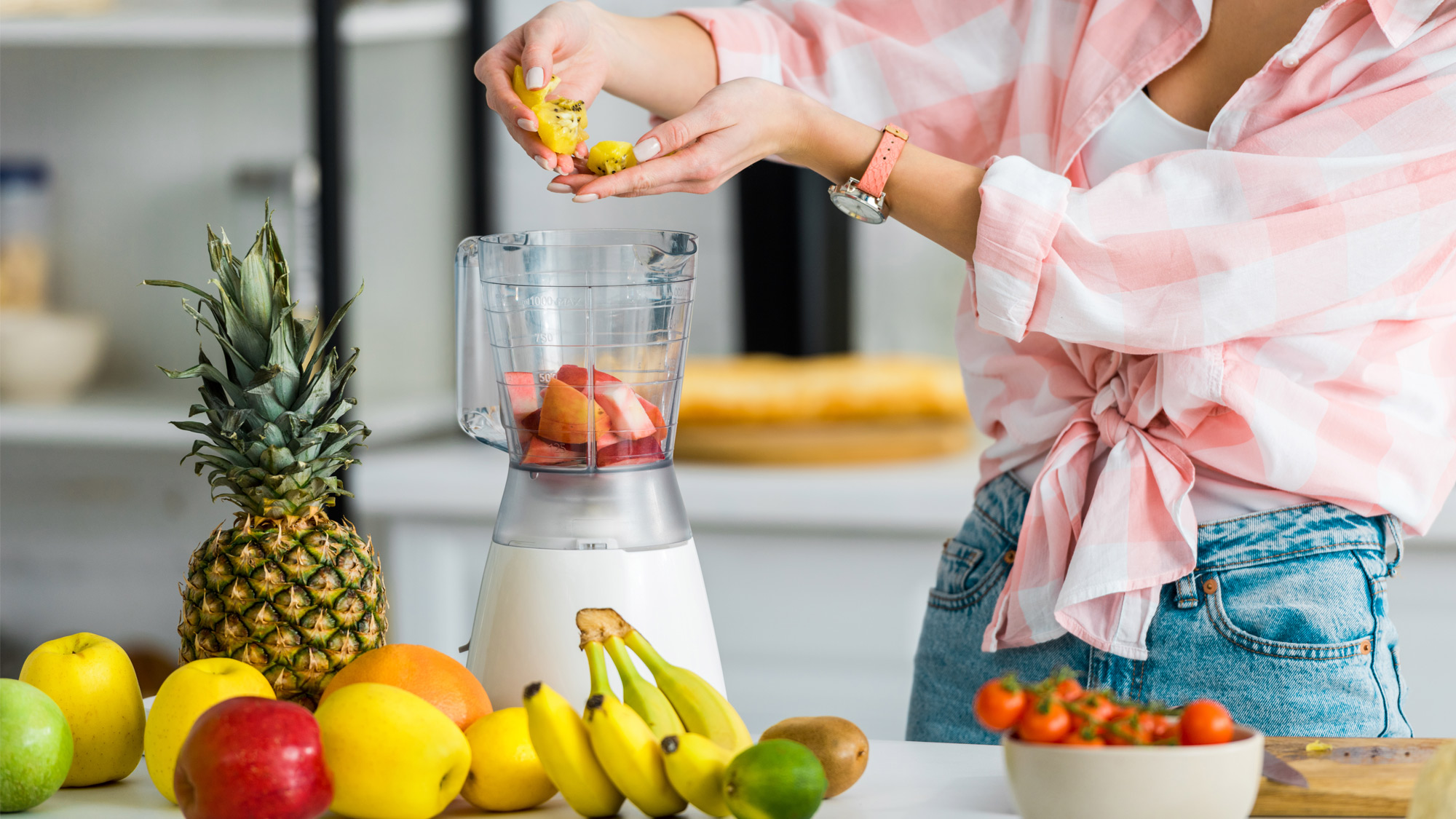Blenders vs food processors: which should I buy?
We’re pitting blenders against food processors to see what the real difference is

It’s blenders vs food processors here as we break down exactly what each of these appliances is for, and find out whether one is better than the other. If you’re considering buying one of the best blenders but want to know if one of the best food processors will be more suited to your needs, we’ve got you covered.
Choosing between a blender and a food processor will depend on what you’re hoping to whip up in the kitchen - both can be incredibly useful but the more suitable option for you might depend on whether you’re looking to make soups, smoothies, sauces, or a range of other dishes with firmer ingredients.
- The best juicers for creating fresh drinks
- Find the best coffee makers for a perfect brew
- Make healthy dishes with the best air fryer around
While they have different capabilities, blenders and food processors both ultimately break down food so that you can add it to recipes or create a whole new dish altogether. We’ve broken down the pros and cons of each type of appliance below.
Blenders vs food processors: pros and cons of a blender
- Better for softer foods
- Can make nut butter
- Easy to clean
Blenders are great appliances for blitzing up fruits and veggies to make fresh smoothies, but they’re also good for making soups, dips and sauces. It’s best to think of blenders as a go-to machine for breaking down soft foods and liquids, but it’s worth noting that blenders will mix up everything you place inside the blending jug, rather than extracting any liquids as juicers do.
Most blenders will be able to purée softer foods, but premium models will also have strong enough blades and powerful motors so that you can blend up nuts and firmer ingredients to make your own nut butter or dairy-free milk. It’s the more powerful blenders that also do a good job of crushing ice but, generally, all blenders should be able to make a smooth mixture out of soft foods.
Blenders are a popular choice for parents who want to make their own food for their baby, but these machines are also a top pick for some because they are easy to clean. Many blender jugs can be placed in the dishwasher so that you don’t have to spend hours cleaning the appliance.
The downside to having a blender is that they can’t be used to make everything - and by that, we mean you won’t be able to use them to shred foods, or break down drier and firmer foods. If you repeatedly try to use a blender to break down hard foods, it can damage the blades. What’s more, blenders will turn everything into a smooth mixture, which is great for some things, but not when you need a crumbly texture. For more advice read our article can a blender be used as a food processor?
Sign up for breaking news, reviews, opinion, top tech deals, and more.

Blenders vs food processors: pros and cons of a food processor
- More versatile
- Harder to clean
- Better for firmer foods
Food processors normally come with attachments which means they can take on a range of foods and create different textures such as dough, fine crumbs and grated foods. The blades on food processors are strong enough to take on harder ingredients, too, such as onions and carrots that a blender would struggle with.
Unlike blenders, food processors can be used to slice ingredients up rather than blend them into a purée, plus there are attachments that can knead dough so that you don’t have to spend ages doing it by hand. You can use a processor to shred cheese, slice vegetables or make the crust of a pie. For more detailed information, read how does a food processor work.
The benefit of a food processor is the flexibility it gives you to create dishes with texture and how it can take on hard fruits and vegetables with ease. There are some downsides, though, and these include how these machines can be hard to clean and that they’re normally quite large to store away.
Check our article on how to clean a food processor for tips on keeping this appliance spotless.
Blenders vs food processors: which one should I buy?
If you’re still unsure whether a blender or a food processor is right for you, consider the foods or drinks you’d like to make. Blenders are better at making smooth mixtures such as smoothies, dressings, sauces, and dips, whereas food processors do a fantastic job of slicing up foods, creating bread crumbs, and kneading dough.
- Save with the best cheap NutriBullet sales
Sophie writes about all things appliance-related and is currently the Home Editor at TechRadar's sister site, Top Ten Reviews. When she's not testing coffee machines and appliances, Sophie is thinking of eating delicious food, and asking people what they're having for dinner.
